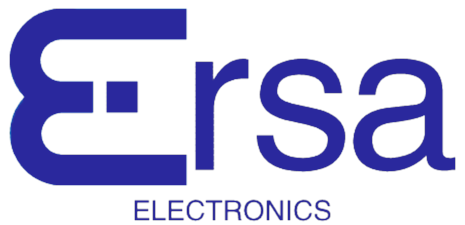Clock Generator / Timing IC
The Telematics Control Unit (TCU) is a critical component in modern automotive electronics, serving as the central hub for vehicle connectivity and communication. It enables seamless interaction between the vehicle and external networks, supporting features such as real-time navigation, remote diagnostics, emergency services, and over-the-air software updates. The TCU relies on a precise clock generator or timing IC to maintain accurate time synchronization, ensuring reliable data transmission and system coordination.
Clock Generator / Timing ICs are essential for maintaining the timing accuracy required by the TCU and other electronic systems within the vehicle. These ICs provide stable and accurate clock signals that ensure proper operation of communication protocols, data processing, and system timing across the vehicle's network.
In the broader context of Automotive Electronics, the TCU plays a key role in enhancing driver safety, improving vehicle performance, and enabling advanced driver-assistance systems (ADAS). It is widely used in connected cars, autonomous driving technologies, and fleet management systems. By integrating with Connectivity & Telematics solutions, the TCU supports continuous data exchange between the vehicle, cloud services, and other devices, paving the way for smarter and more efficient transportation.
This technology is vital for automotive manufacturers aiming to deliver next-generation vehicles with enhanced connectivity, reliability, and user experience. It is an essential part of the evolving automotive ecosystem, driving innovation in vehicle communication and control systems.
Details
Clock Generator / Timing IC

Related Parts
| Series Name | Description | Manufacturer Name | Attribute Description |
|---|---|---|---|
| Renesas Electronics Corporation | 16-bit ADC, 0.1% sensor accuracy, 3.0-5.5V supply, integrated signal conditioning, SPI/I²C interface, -40°C to +125°C operating temperature, supports resistive sensors. | ||
| Texas Instruments | 32V to 85V input voltage range, integrated high-side N-FET, 1.2MHz switching frequency, 4A peak current, supports buck-boost operation, I2C interface, fuel gauge functionality, AEC-Q100 qualified. | ||
| Texas Instruments | Real-time clock (RTC) with integrated quartz crystal; operates from 1.7V to 5.5V; low current consumption; I2C interface; includes battery backup and oscillator; supports time and date tracking. | ||
| Texas Instruments | 1.8V to 3.3V supply voltage; 4-output LVCMOS/LVTTL clock driver; 250 MHz typical frequency; low jitter; 32-pin QFN package; industrial temperature range. | ||
| Texas Instruments | Input voltage up to 14V, 3A max charge current, I2C control, supports single-cell Li-ion/Li-polymer, integrated FETs, 1.5MHz switching frequency, 2mm × 2mm DFN package. | ||
| Texas Instruments | Supply voltage: 1.6V to 6.5V; Threshold voltage: Adjustable via external resistors; Accuracy: ±1.5%; Operating temperature: -40°C to +125°C; Open-drain reset output; Ultra-low power consumption. | ||
| Texas Instruments | Supply voltage: 2.5V to 5.5V; Threshold voltage: Adjustable via external resistors; Accuracy: ±1.5%; Operating temperature: -40°C to +125°C; Open-drain reset output; Low supply current: 1.8µA (typ). | ||
| Texas Instruments | Low-power programmable timer, 1.8V to 5.5V supply, 35nA typical standby current, open-drain reset output, watchdog timer function, 2-pin interface for delay configuration, operating temperature: -40°C to 125°C. | ||
| Texas Instruments | Operates from 2V to 15V, low power consumption, typical current 225µA, output source/sink current up to 100mA, operating temperature -40°C to 125°C, high speed response, TTL compatible. | ||
| Texas Instruments | 1.4GHz LVDS fanout buffer, 1.8V/2.5V/3.3V supply, 2.7ps jitter, 1.2ns propagation delay, automotive grade, -40°C to 125°C temperature range, 16-pin VQFN package. |








.png?x-oss-process=image/format,webp/resize,h_32)










